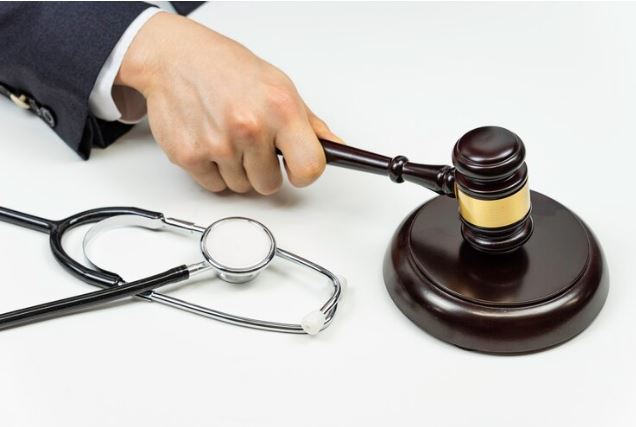
Defending Healthcare Fraud: How to Choose the Right Lawyer
In fiscal year 2020, steps taken to stop healthcare fraud led to more than 1,000 convictions for crimes and almost 800 civil actions. Healthcare fraud is one of the more complex situations that requires defense attorneys with particular knowledge to handle.
These lawyers employ a variety of legal tactics, including contesting the government’s interpretation of billing rules and regulations, appealing the insufficiency of the evidence, and negotiating advantageous plea deals or settlements in opposition to the fraud accusations.
Healthcare fraud can occur at both the state and federal levels. Medicare fraud defense attorney Barry M. Wax says that a fraud case may involve multiple types of fraud. Be it healthcare fraud or Medicare fraud, they can be prosecuted under a variety of laws at the federal level.
In this article, we’ll be talking about things to look for that will help you choose the right lawyer for your case and guide you through it. Starting with knowing your legal needs, learn more about each consideration and how it can point you in the right direction.
Understanding Your Legal Needs
According to a pharmacist license defense attorney, you must assess your case depending on the accusation. Are you facing allegations of fraudulent billing, kickbacks, or violations of the False Claims Act? Understanding the charges against you’ll help you find a lawyer with the relevant expertise.
Then, think about the level of defense you require. Do you anticipate a lengthy trial or a plea deal? This will guide you in selecting a lawyer with the right litigation experience or negotiation skills. Next is to evaluate the resources you have available for legal representation. Be realistic about your budget, and seek a lawyer whose fees align with your financial situation. Investing in a skilled attorney can have a great impact on how things will go for you.
The lawyer’s geographical location is also mentioned. A local attorney may have relevant knowledge of the specific laws and regulations governing health care fraud in your area.
Researching Lawyer Specializations
When considering health care fraud lawyers, make sure that their specializations align with your case’s specific legal requirements. Specializations in healthcare fraud law can vary widely, and it’s best to find a lawyer whose expertise lies in handling cases similar to yours.
Look for attorneys who’ve got a track record of success in defending healthcare fraud allegations. Some lawyers may specialize in defending individual healthcare providers; others focus on representing healthcare organizations or handling cases related to specific types of fraud, such as Medicare or Medicaid fraud.
Evaluating Experience and Track Record
Look for attorneys who’ve a proven history of successfully defending clients in healthcare fraud cases, how long they’ve been practicing in this specific area of law, and the types of cases they’ve worked on. A lawyer with extensive experience in healthcare fraud will likely master the complexities involved and how to work on them effectively.
Review their track record by examining the outcomes of past cases they’ve handled. Look for lawyers who’ve got a track record of achieving favorable results for their clients, such as dismissals, reduced charges, or acquittals. Check any testimonials or reviews from previous clients as well, as they can provide insight into the lawyer’s abilities and professionalism.
Assessing Communication and Availability
Effective communication and timely handling are crucial in healthcare fraud cases. Look for a lawyer who’s responsive to your inquiries, keeps you updated on case developments, and explains legal jargon in a way that you can understand. Clear and open communication will help you stay informed and make important decisions throughout the legal process.
Assess the lawyer’s availability to dedicate time to your case. A lawyer who’s overloaded with cases may not be able to give your healthcare fraud case the attention it requires. So, choose a lawyer who has the capacity to prioritize and work on your case. Availability also includes being able to schedule meetings, court appearances, and discussions immediately.
Considering Fees and Payment Plans
When selecting a lawyer to defend you against healthcare fraud allegations, consider the fee arrangements they offer. Some lawyers may charge a flat fee for their services, while others may work on an hourly basis. Clarify how the lawyer bills for their time and services to avoid any surprises later on. Remember to inquire about any retainer fees or upfront costs too, as they may be required to secure their representation.
Also, include payment plans when making decisions. Discuss with the lawyer whether they offer flexible payment options that align with your financial situation. Some attorneys may be willing to set up a payment plan that allows you to pay in installments rather than requiring a lump sum upfront. By considering both the fee structure and payment plans upfront, you can have the assurance that they are financially manageable for you.
Conclusion
When facing healthcare fraud charges, choose the right lawyer. By understanding your legal needs, researching specializations, evaluating experience, assessing communication, and considering fees, you can help you get the best defense possible.
Reach out to a qualified lawyer who can help you with the complex issues in your legal process and protect your rights. Your future may depend on it.









